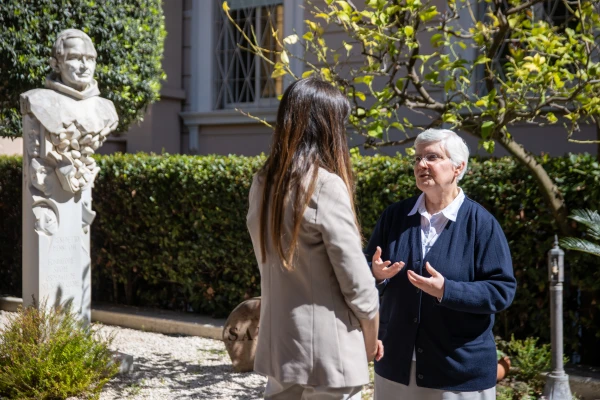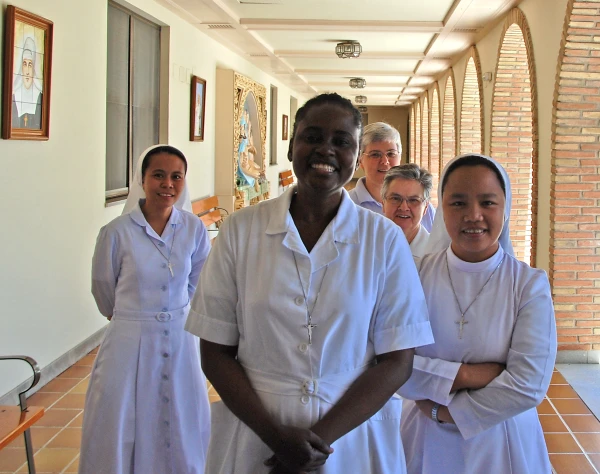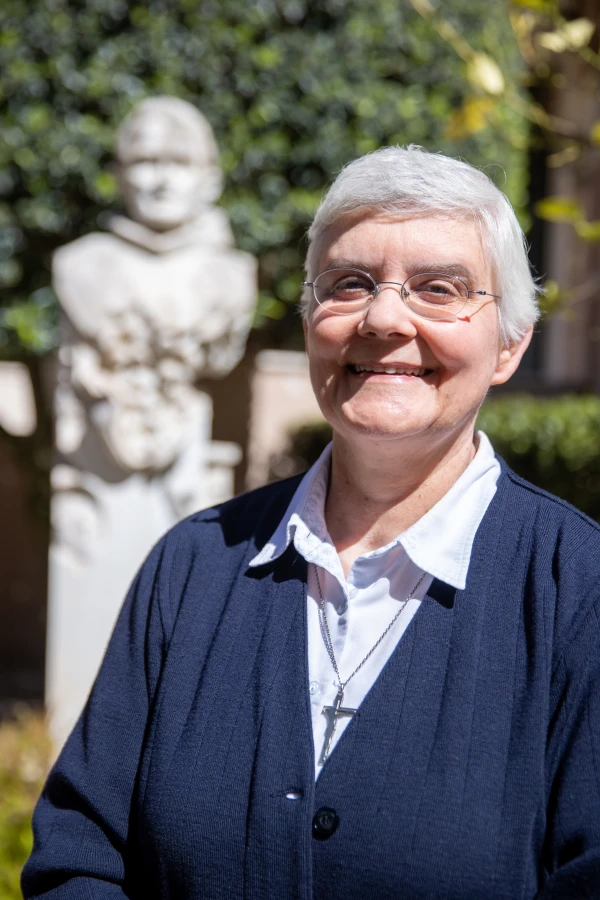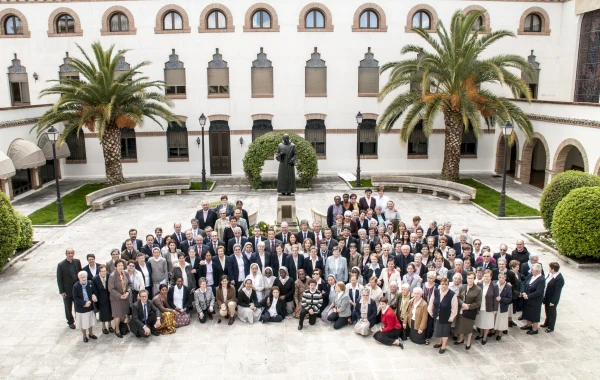For the Idília sister Maria Moreira G. Carneiro, superior general of the hospital sisters, the disease is not only a diagnosis or a curse that should be avoided at all costs, but a privileged place to meet God.
“For us, the sick are like the theological place where God speaks to us and where we also speak of God and God,” he explains in an interview with Aci Press.
Receive the main news of ACI Press by WhatsApp and Telegram
It is increasingly difficult to see Catholic news on social networks. Subscribe to our free channels today:
“We are a congregation with entrails of mercy,” he adds.
Since its foundation in 1881 in Spain, this congregation is a tenderness refuge for the discarded world, especially for those who suffer from mental illnesses.
With presence in more than 25 countries, they serve about 820,000 people every year and their mission is nourished by the certainty that Christ is just on the other side of pain.
“When the meaning of life seems to fade, only God can print that light of hope,” says the Idília sister.
In his words there is no superficial idealization of the disease, only total delivery and without conditions to the pain of others until it is own.

“In the patients we discover that living presence of Christ, which challenges us and confirms in fidelity as well,” says this nun born in Mozambique in 1966 whose small figure and his simple treatment contrast with the immense strength of his heart.
“My life option configures the service I perform. My vocation is a gift that I discover in the relationship with Jesus, in sharing with the community and, above all, in the service of the sick, especially people with mental illness, who are the preferential recipients of our mission,” he describes.
On one occasion, he attended a man with a terminal disease that was not a believer. He was in a palliative care unit and, when he entered his room, he asked him to leave him alone with the crucifix.
“And he said: ‘It seems to me that I have to have a very important conversation with him,” he details, after verifying how, given the certainty of the proximity of death, this person experienced that he had to reconcile with God.
This experience and many others have confirmed that faith “also influences the process of therapeutic and recovery rehabilitation.”
With their service, the hospital sisters, silent heroines, remind the world that every life, even in their fragility, has absolute value.
The global health crisis caused by COVID-19 put the disease in the center of everyday life and the hospital sisters had to triple their efforts.
“Faced with a situation that threatened life, emerged that the most important thing is humanity, care, proximity and closeness,” he says.
In any case, the Idília sister observes that the pandemic also made profound wounds in society that are now palpating in the form of “psychic fragility”, of “anxiety”, of “family crisis that have accelerated” or depression, especially in young people and adolescents.
“We are less tolerant (…) society in its globality is much more individualistic and we are more locked in us,” he says.
Next, it states that the fraternity that Pope Francis asks and his mission next to the patients is “countercurrent” in a narcissistic world where egos emerge more and more.
“You live each thinking about itself and this is a big challenge for the Church and for humanity itself,” he concludes.

“The sick teach us a lot”
“Accompanying them, knowing so many lives touched by suffering, that they do not lose that sense and that human sensitivity; on the contrary, the disease makes the person closer, more sensitive and even more attentive to the needs of the other. The sick teach us a lot too, because they are much more attentive to the human dimension,” he explains.
“In the disease there is life, there are dreams, there are projects, there is a meaning, there are potentialities and that challenges us,” he says, a few days after the jubilee of the sick, the seventh great event of the Holy Year of Hope, that his congregation welcomes with joy to revitalize his mission is celebrated.
“Our mission is a mission of hope because we believe in the intrinsic dignity of each person, beyond their illness,” he says with conviction. For the congregation, this jubilee, that the Catholic Church celebrates the April 5 and 6 and in which 20,000 pilgrims from 90 countries will participate constitutes a call to reaffirm their commitment to the sick and their families.

“We are organizing various initiatives at the local level and actively participating in diocesan dynamics. Some of our centers have been designated as jubilee temples, because we believe that health and reception spaces are, in themselves, doors of hope,” he explains.
A family marked by care to the sick
The love for the most vulnerable is not an isolated feature in his life, but a medulla that crosses his family history. Three of his sisters have been given to the same hospital vocation, a fact that speaks of the deep root of faith that his parents sowed in them.
“Our parents have left us a legacy in which faith and charity towards the poorest are complemented and set as the essentials of life, and that is structuring us,” he says.

That experience of the values of the Gospel, through the aid to the poorest, “has helped us to create in us that humus where the vocation to consecrated life is also growing, it is awakening.”
In fact, in May 2024 it happened in the position of Superior de la Congregation to her blood sister, sister Anabela Carneiro. His father, a military person, led the family for various countries, an experience that molded his worldview. From girls, they had contact with different cultures and realities.
“We traveled a lot and that has opened us towards a different world. It has also generated in us a certain itinerant culture and a lot of openness to the universal and the different,” he concludes.

